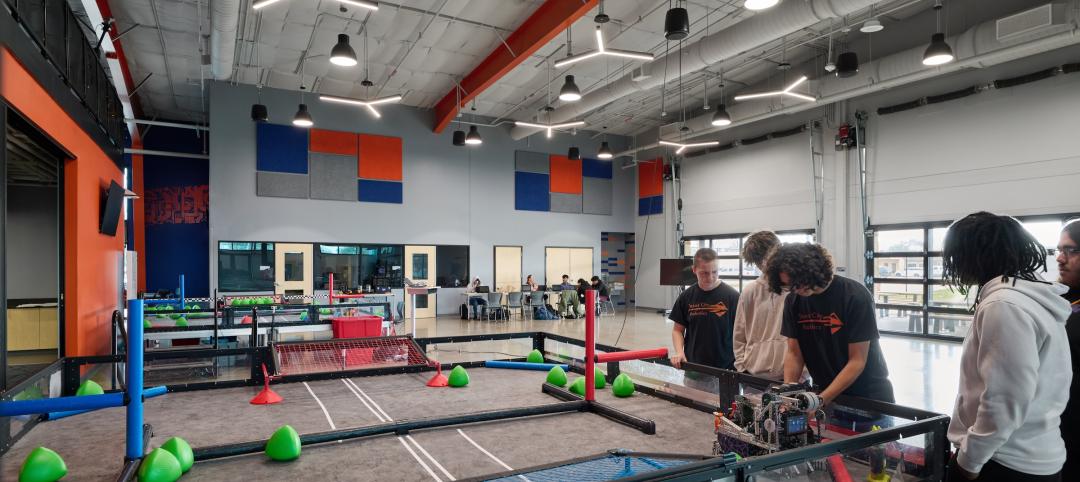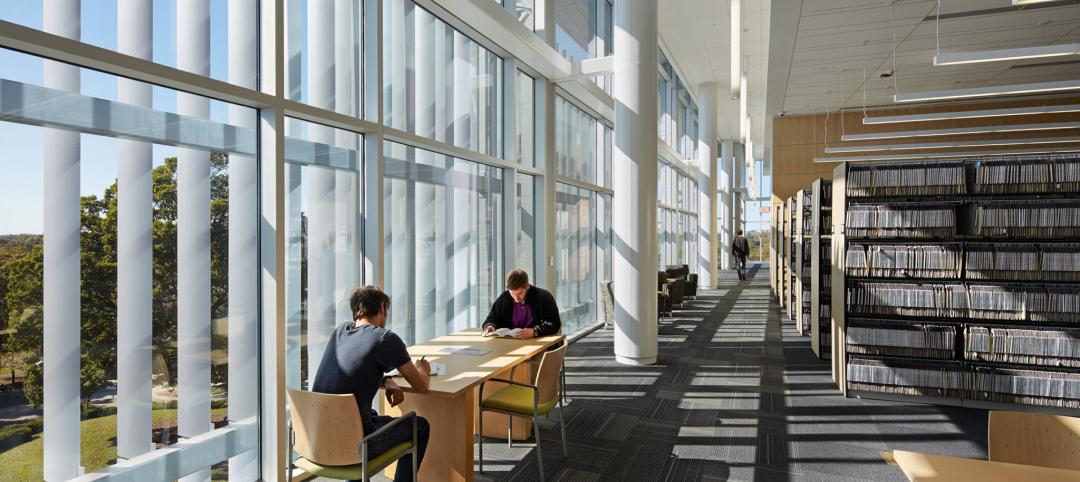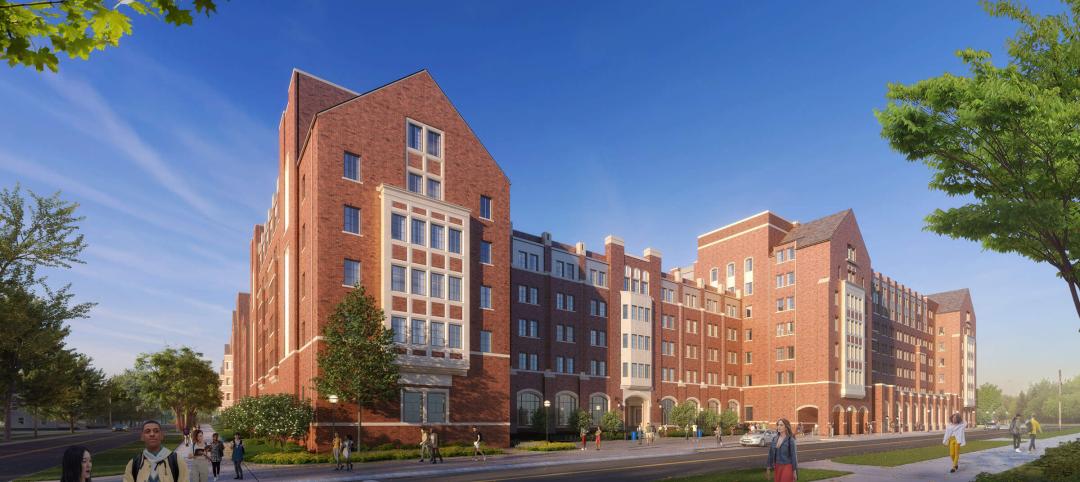America’s crumbling roads, decrepit bridges, aged water systems. Our deficient dams, underserved levees, and woeful wastewater treatment plants. For nearly three decades, the American public has heard ad nauseam about the dreadful condition of the nation’s infrastructure—from airports to railways to hazardous waste facilities.
Since 1988, the American Society of Civil Engineers, through its Infrastructure Report Card, has shone a spotlight on the alarming shortfall in funding and resources to operate, maintain, and modernize the country’s infrastructure network. ASCE’s latest report card, released in March, scores the nation’s overall infrastructure at a D+ (it’s never scored higher than C). The price tag to modernize the country’s infrastructure systems: a whopping $4.59 trillion over 10 years, more than triple the cost from the 2001 report.
Of the 16 infrastructure sectors that ASCE evaluates quadrennially, only one—K-12 schools—is buildings-focused. The trade group scored the nation’s 100,000 public school buildings at a collective D+, citing an annual investment shortfall of $38 billion to maintain and upgrade facilities and a backlog of necessary improvements (53% of schools require upgrades to reach “good” condition).
Left out of this ongoing national debate over infrastructure—and the trillions of dollars of public funding that is expected over the next few decades—are the nation’s other public buildings: the libraries, community centers, courthouses, community college buildings, affordable housing developments, and justice facilities.
These, too, are critical to the safety, security, and vibrancy of cities and communities. And as is the case with the nation’s public schools and major infrastructure sectors, these so-called “social infrastructure” buildings are being neglected, with years of deferred maintenance, patchwork repairs, dwindling CapEx and OpEx budgets, and even the weakening and repeal of building codes—especially those related to resiliency and sustainability.
Thrusting the nation’s social infrastructure into the spotlight has been a recent crusade of the leadership at the American Institute of Architects. AIA kicked off this initiative in November 2016 with a national poll of 2,108 U.S. adults to assess the importance of public buildings to their communities. The findings: more than 80% see public buildings as part of the nation’s infrastructure, and 94% agree that well-supported buildings are important to their communities (whether they’re willing to open their wallets to help fund such
efforts is another question).
AIA has had its share of controversy during the past 12 months, most notably the post-election statements that riled some of its members. But AIA leadership deserves a pat on the back for its efforts with this campaign. Let’s just hope their proclamation resonates with the nation’s policymakers.
Related Stories
K-12 Schools | Aug 8, 2024
New K-12 STEM center hosts robotics learning, competitions in Houston suburb
A new K-12 STEM Center in a Houston suburb is the venue for robotics learning and competitions along with education about other STEM subjects. An unused storage building was transformed into a lively space for students to immerse themselves in STEM subjects. Located in Texas City, the ISD Marathon STEM and Robotics Center is the first of its kind in the district.
Affordable Housing | Aug 7, 2024
The future of affordable housing may be modular, AI-driven, and made of mushrooms
Demolished in 1989, The Phoenix Ironworks Steel Factory left a five-acre hole in West Oakland, Calif. After sitting vacant for nearly three decades, the site will soon become utilized again in the form of 316 affordable housing units.
Architects | Aug 5, 2024
Mastering the art of project schedule: Expert insights on design and construction
We sat down with two experts in the design field, Ron Dick (Founding Partner and Architect) and Mike Niezer (COO and Architect), to talk about everything you need to know about the entire process.
University Buildings | Aug 1, 2024
UC Riverside’s student health center provides an environment on par with major medical centers
The University of California, Riverside's new Student Health and Counseling Center (SHCC) provides a holistic approach to wellness for students throughout the UC Riverside campus. Designed by HGA and delivered through a design-build partnership with Turner Construction Company, SHCC provides healthcare offerings in an environment on par with major medical centers.
Libraries | Aug 1, 2024
How current and future trends are shaping the libraries of tomorrow
Over the last few years, public libraries have transitioned from being buildings that only store and lend books to being fully featured community centers.
MFPRO+ News | Aug 1, 2024
Canada tries massive incentive program to spur new multifamily housing construction
Canada has taken the unprecedented step of offering billions in infrastructure funds to communities in return for eliminating single-family housing zoning.
Government Buildings | Aug 1, 2024
One of the country’s first all-electric fire stations will use no outside energy sources
Charlotte, N.C.’s new Fire Station #30 will be one of the country’s first all-electric fire stations, using no outside energy sources other than diesel fuel for one or two of the fire trucks. Multiple energy sources will power the station, including solar roof panels and geothermal wells. The two-story building features three truck bays, two fire poles, dispatch area, contamination room, and gear storage.
Contractors | Aug 1, 2024
Nonresidential construction spending decreased 0.2% in June
National nonresidential construction spending declined 0.2% in June, according to an Associated Builders and Contractors analysis of data published today by the U.S. Census Bureau. On a seasonally adjusted annualized basis, nonresidential spending totaled $1.21 trillion. Nonresidential construction has expanded 5.3% from a year ago.
Student Housing | Jul 31, 2024
The University of Michigan addresses a decades-long student housing shortage with a new housing-dining facility
The University of Michigan has faced a decades-long shortage of on-campus student housing. In a couple of years, the situation should significantly improve with the addition of a new residential community on Central Campus in Ann Arbor, Mich. The University of Michigan has engaged American Campus Communities in a public-private partnership to lead the development of the environmentally sustainable living-learning student community.
MFPRO+ New Projects | Jul 31, 2024
Shipping containers converted into attractive, affordable multifamily housing in L.A.
In the Watts neighborhood in Los Angeles, a new affordable multifamily housing project using shipping containers resulted in 24 micro-units for formerly unhoused residents. The containers were acquired from a nearby port and converted into housing units at a factory.

















